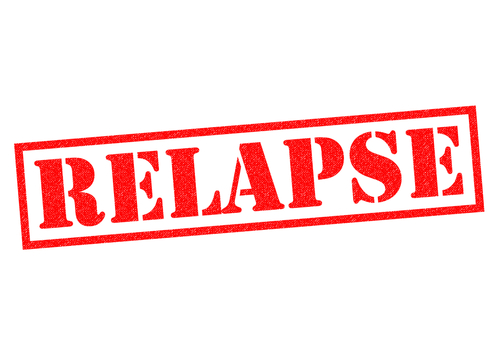One thing needs to be immediately understood about relapse: it does not have to be part of the recovery process. Men in recovery might experience temporary slips by returning to drug and alcohol use or abuse for a few days or less. A relapse is typically anything more than a week to a few weeks, a few months, or even a few years. After a substantial amount of time in active sobriety, men fall back onto old patterns of thinking and behaving. These old patterns encourage men to abandon the changes they have made and return to their old method of survival by turning to drugs and alcohol. Many different factors can contribute to a relapse and a relapse can build for some time. Most often, the moment that a man picks up a drink or a drug again is just the climax in a long development. What is most important when your or a loved one relapse in recovery is returning to recovery as quickly as possible. Foolishly, too many men believe that what happens in a relapse is under their control. Just a few drinks, just one more time, just a few days, just this party, just this occasion, just this holiday- all of these moments can quickly be a last moment. Unfortunately, that is the stark reality of drug and alcohol addiction. “Just this time” can be the last time, without a moment’s notice.
Contact support
Call your therapist, counselor, treatment advisor, friend, sponsor, or family member who is aware of you or your loved one’s struggle with addiction. The very act of reaching out for help is an instantaneous practice of humility, which will be a requirement for carrying forward in recovery once more.
Determine if you need detox
What many men believe to be “just one drink” can turn into a relentless bender including more than alcohol. Every individual body distinctly reacts to drugs and alcohol. If you may need detox again, make the calls necessary to put yourself in a clinical environment to safely withdraw from drugs.
Determine if you need treatment
Sometimes men leave treatment too soon, take on too many responsibilities, or realize they did not fully participate in treatment the first time, or last time, they were there. Treatment is always the safest option for receiving the clinical care necessary to recover.
Get to a meeting
Going to a meeting and openly admitting to a relapse may not sound like the extra bearing of shame your or your loved one need after a relapse. Diving into the support of a recovery fellowship can be exactly what is needed, especially if there is a deterrent in going to detox or treatment. Meetings can be found in person, online, and on the phone.
Reflect
Relapse is not considered an episode, but a process. Most often, there have been days, weeks, months, or even years of a slow descent into relapse. Euphoric recall, hanging out with old friends, ceasing to attend meetings, not calling a sponsor, and neglecting therapy are all common causes. What truly causes relapse is returning to the belief that somehow, in some way, drugs and alcohol hold a better promise than sobriety. Take time to reflect on what may have led to making the choice to pick up drugs and alcohol again. Be honest with yourself and with your trusted support network in order to learn from this experience and better inform your new recovery. Ask yourself who you were with, what you were thinking, what you were doing, how you were feeling, and what obvious, or not obvious factors contributed to a relapse.
Have compassion
Relapse happens. It does not have to, but it does happen. Sustainable recovery is possible. If you or a loved one has relapsed, have compassion and understanding for the complexity that is addiction. Return to recovery as quickly as possible. Freedom from addiction can be yours.
At Tree House Recovery, we’re helping men find freedom from addiction. Our treatment programs create sustainable change for sustainable recovery by helping men find their strength in body, mind, and spirit. For information on our Orange County programs, call us today: (855) 202-2138






